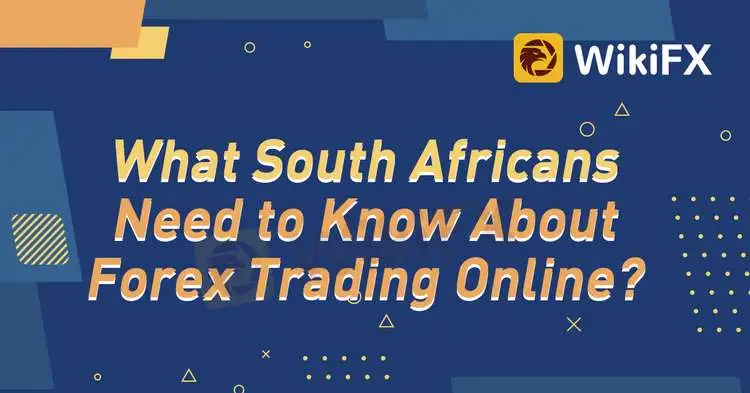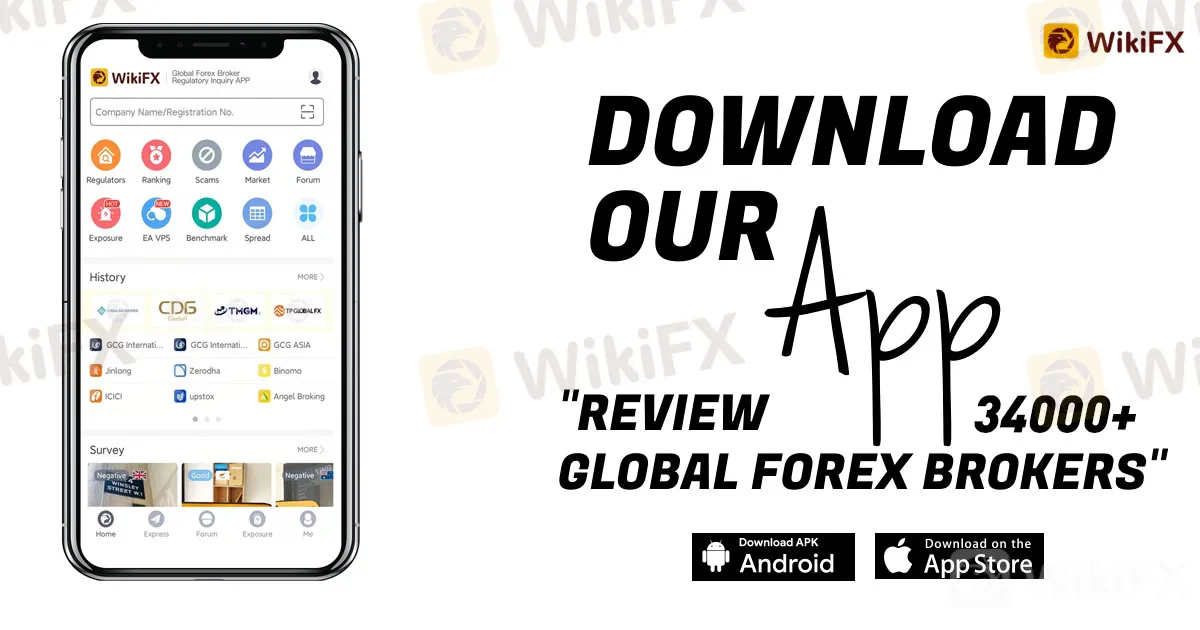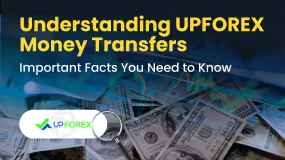Abstract:South Africans have been progressively dealing in foreign exchange (FX or Forex) in recent years, and this demand is projected to expand in the next years, as local investors become more interested in it as an alternative asset class.

South Africans have been progressively dealing in foreign exchange (FX or Forex) in recent years, and this demand is projected to expand in the next years, as local investors become more interested in it as an alternative asset class.
In 2019, the overall volume of SA's foreign exchange market, which includes all products such as spot, futures, options, FX swaps, and contract for difference (CFDs), was $20.3 billion per day, with spot FX accounting for 11% of the total.
In 2016, ZAR trading on the South African FX Market had a turnover of roughly US$20.6 billion.
Furthermore, as European market laws have tightened in recent years, foreign brokers have become increasingly interested in South Africa and Africa as a whole, because local regulations in SA are more broker-friendly than in Europe, allowing them to accept customers from all across Africa.
FX is also gaining appeal among many new small investors who are encouraged by the success tales of South African traders.
As a result, there has been a rise in total local demand for foreign exchange in South Africa.
What is the difference between Forex and CFDs?
The Forex market, also known as the foreign exchange market or currency market, operates on the basis of price differences between currencies in a currency pair, resulting in a deal between two parties for a variety of reasons.
For various reasons, there are several players in the Forex market. Banks participate in global commerce by providing liquidity in the market for businesses, and institutional investors and individual traders profit from currency market fluctuations by speculating on them. Forex trading is the term for this type of speculation.
Speculating on currencies is a big element of the Forex market, with retail Forex traders accounting for 4% of total activity.
Buyers expect one currency to appreciate in value versus another in Forex trading, while sellers predict the reverse. In the case of exporters and importers, the utility of this movement comes into play when the buyer or seller must produce a payment in another currency and must manage against the risk of price swings due to currency value change.
The majority of forex trading investments are based on future market movements and profit from the currency pair's FX rate.
Let's look at the USD/ZAR exchange rate as an example.
Because the USD is a stronger currency, you'd require an investment in ZAR equal to the USD/ZAR FX rate to buy a single unit of USD. If the investor expects the USD to strengthen in the future, selling the USD units kept would result in a bigger quantity of ZAR than was invested, resulting in a profit. Through a Forex broker, investors may trade Forex using multiple products such as Spot FX, Futures, and Options.

Other products, including as CFDs, are also accessible through brokers.
A contract for difference (CFD) is an agreement between two parties on an underlying asset for the difference in the underlying asset's value from the time the agreement begins to the time it ends. The underlying asset might be a stock, a commodity, or an index that is paid in cash at the end of the contract.
For example, if the share price of ABC Ltd is R100 and an investor buys 100 shares through a CFD arrangement with a broker, the total investment is R10,000.
Unlike traditional equities trading, margin trading in CFDs only requires a little amount of capital to start a transaction. The initial margin amount is determined by the brokerage. In other words, R500 represents a 5% increase.
The trader earns a profit of R100 when the share price moves to R101 at the expiration of the CFD, a 20 percent return on investment that is far higher than what the trader would obtain otherwise. However, the risk is also present if you are on the losing end of the game.
Is it possible for investors to profit from Forex trading?
There are a few things to think about.
Margin and leverage are two of the most common methods used by traders to try to increase their gains from the market. Forex firms provide exceptionally high leverage – up to 1:1000 – with fewer limitations than other trading products.
While high leverage allows investors to make a trade with a little initial commitment, it also exposes them to more risk in the event of an unfavorable currency fluctuation.
For example, if an investor uses a high leverage of 1:500 to initiate a USD/ZAR trade with a R100,000 buy position, the margin or initial investment required is simply a fraction of the position, which is set by the brokerage depending on the leverage selected by the trader, which in this case is R200.
If the position strengthens to R101,000 during the course of a trade, the upward movement of R1,000 in the pair would yield a 500% return. In other words, R1,000 on an R200 investment vs R1,000 on an R200 investment when trading directly without leverage.
In the event of leveraged trading, however, if the currency falls lower against your starting position size of R100,000 by R1,000, the losses are also 500 percent.
Investors should also be aware that currency market movements are extremely volatile, and are influenced by variables such as GDP and the economy, the country's political status, global commerce, and retail and institutional investor speculation. Human mistake is also a typical occurrence in the trading world.
If the aforesaid considerations are not taken into account, the erratic fluctuations of a currency pair can either earn you a lot of money or make you lose a lot of money.
The CHF crisis is a great example of investors losing money due to market volatility.
For investors, the Swiss Franc (CHF) was seen as a safe haven. However, the Swiss National Bank opted to remove the CHF price cap and allow it to float, causing the CHF to appreciate in value versus a number of major currencies. As a result of the enormous losses on their open CHF deals, numerous investors and brokers declared bankruptcy.
Similarly, in the case of the ZAR and USD, any changes in South Africa's economic policies, as well as any international event affecting trade or political upheaval involving USD, will alter the USD/ZAR pair's demand and supply, and therefore the investor's position.
Overall, investors should anticipate a high return on investment if their expectations are evaluated, as there is plenty of potential for South African investors who adopt the proper strategy in the local and worldwide financial markets.
Asset allocation, diversification, choosing the correct currency pair, effective risk management strategies, and knowing the product before investing might all contribute to a strong long-term return.

Important factors to consider
It is critical to trade in a regulated trading environment to protect one's money from the volatility of the Forex market and to reduce the danger of making poor judgments.
Investors should choose a regulated broker that adheres to the rules set out to protect the trading environment.
South Africa's Financial Sector Conduct Authority (FSCA) offers such an atmosphere, and its licensed brokers are the safest to invest with.
Forex brokers authorized in South Africa must fulfill capital criteria, have a local office and director in South Africa, have professional indemnity insurance, provide grievance resolution, and adhere to all FSCA laws.
Another way for maintaining a safe trading environment is leverage limiting, which limits the amount of loss an investor may suffer. After evaluating the hazards associated with leveraged margin trading, ESMA, ASIC, FCA, and other regulatory agencies throughout the world have proposed a leverage maximum of 1:30.
To be assured of the amount to be invested and the instrument in which the investment will be made, an investor must also recognize that he or she must educate themselves on market subtleties and economic risks.
As a result, investor education is becoming increasingly vital, with a plethora of books and websites accessible on the subject.
Alternative devices that are less dangerous
The key to a successful investing portfolio is diversification.
Because the Forex market is dangerous for most investors, there are alternative less risky investing choices available in South Africa, such as mutual funds, government bonds, and equities listed on the JSE.
In South Africa, there are a few mutual fund providers that provide safer investing programs with a variety of possibilities, including unit trust investments, financial counseling, and news and analysis.
Government bonds are considered the safest debt instruments, are backed by the State, and are generally based on fixed and floating interest rates.
The JSE has one of the most liquid bond markets in Africa and is considered less risky. It is the largest stock exchange in Africa, and investing in stocks can get you long term good returns, if as an investor you can predict the market movements well.
Government bonds are the safest debt instruments since they are backed by the government and have set and floating interest rates.
The JSE is one of Africa's most liquid bond markets and is seen to be less hazardous. It is Africa's largest stock exchange, and investing in equities may yield significant long-term profits if you can correctly forecast market changes.












